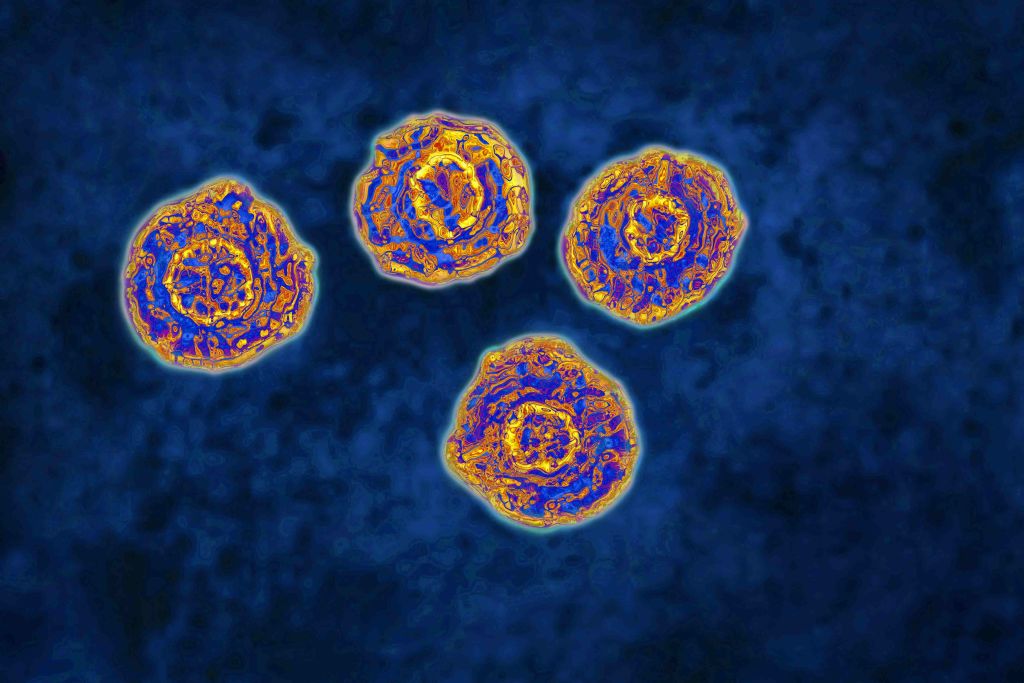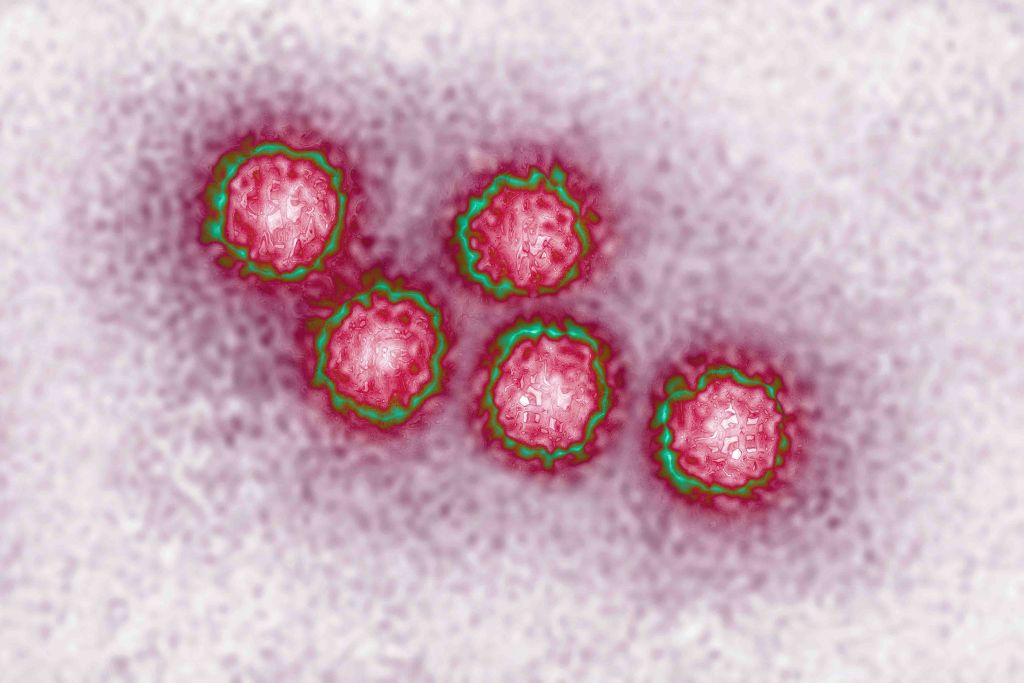 Hepatitis C virus. | Source: BSIP / Getty
Hepatitis C virus. | Source: BSIP / Getty
Originally published on NewsOne
When it comes to hepatitis, the liver disease that disproportionately affects Black people can exhibit similar symptoms regardless of which of its variations one is inflicted with.
There are 11 main symptoms typically experienced by people who have hepatitis A (HAV), B (HBV) or C (HCV), according to statistics provided by the Centers for Disease Control, which cautions that nu ber could rise or fall depending on the individual.
They include but are not limited to jaundice, fever, fatigue, loss of appetite, nausea, vomiting, abdominal pain, joint pain, dark urine and clay-colored stool. Diarrhea is typically a symptom only for HAV.
MORE: Hepatitis C Statistics By Race: Black Facts By The Numbers
But when you get a little more granular, data shows that the likelihood of developing symptoms for HAV, HBV or HCV depends according to age as well as a couple of other demographics.
Three out of 10 children who are ages 6 and older can have symptoms of HAV, data shows. With HBV, up to 50% of children 5 and younger can develop symptoms while “most children” older than 5 are asymptomatic.
With HCV, there’s up to a 30% chance of experiencing jaundice, “a condition in which the skin and the whites of the eyes become yellow, urine darkens, and the color of stool becomes lighter than normal,” as defined by the National Cancer Institute. However, there is no certain symptom assigned to up to 20% of the people with HCV.
 Hepatitis B virus. | Source: BSIP / Getty
Hepatitis B virus. | Source: BSIP / Getty
Statistics show that up to 75% of people with HCV are unaware of their status, while Black boomers — those born between 1955 and 1964 — are twice as likely to have HCV than other baby boomers.
Dr. Cristal Brown, M.D., MHS previously spoke to NewsOne about how to contract HCV, the variant that is one of the leading causes of death among Black people aged 45 to 65. The board-certified gastroenterologist and transplant hepatologist based in Texas said it’s typically a surprise when people learn they have the disease because some symptoms may not go noticed.
“With hepatitis C, most people who get infected have no idea they have the virus. This is the reason why the screening for hepatitis C has changed tremendously,” Brown, who is based in Texas and serves as an assistant professor in the Department of Internal Medicine at Dell Medical School, said. “We used to try to target high-risk individuals; folks who were using drugs, those who were imprisoned, people who were getting homemade tattoos and piercings and men who were having sex with men. The old guidelines for screening were to check baby boomers. What we found was that there were a lot of people who had none of the traditional risk factors who would be positive for hepatitis C.”
Unlike HAV and HBV, Black people in the U.S. are twice as likely to develop HCV in relation to the rest of their American counterparts, making it clear who needs to be most vigilant about the disease and its symptoms.
The reason for the lopsided HCV statistics is that in many cases, Black people are a victim of their own circumstances.
“It goes back to social determinants of health. We realize health outcomes—especially in Black communities—really are affected by those social determinants like poverty,” Dr. Gia Tyson, a gastroenterologist whose work is associated with the Louisiana Department of Health’s initiative to eliminate hepatitis C, previously explained to NewsOne. “Hepatitis C is transmitted primarily from blood-to-blood contact. There’s a higher risk with injection drug use. If that is prevalent in the community and there aren’t opportunities for harm reduction like needle sharing programs or people being treated for Hep C to get it out of the circulation, then those populations—especially African Americans—will be at higher risk of getting hepatitis C.”
In many cases, hepatitis can lead to cancer of the liver during an undetermined amount of time that can go unnoticeable without screening. Testing has been described as a simple process that involved having one’s finger pricked to draw blood with results typically being rendered within 20 minutes.
 Hepatitis A virus. | Source: BSIP / Getty
Hepatitis A virus. | Source: BSIP / Getty
Dr. Joan A. Culpepper-Morgan, chief of gastroenterology at Harlem Hospital Center in New York City, described HCV for Black people, in particular, as being as “crisis” levels.
As the saying goes, when America catches a cold, Black American catches the flu — and HCV is no different as the rate of Black people getting HCV is double the national average.
“These are alarming numbers,” Culpeper-Morgan told medical website HCPLive. “I do think that these are numbers that make us characterize prevalence of hepatitis C in the African American community and in particular the urban (community) as being of crisis proportions.”
If you’re experiencing any of the above symptoms, please know you have options, and chief among them is awareness and making sure to see a physician and request testing for hepatitis.
“Spreading awareness is very important because it’s another preventative measure,” Dr. Alana Biggers, who practices internal medicine and is an assistant professor at the University of Illinois at Chicago College of Medicine, told NewsOne. “The recommendations have changed over the last couple of years or so. When I first started as a physician the recommendation was for people within the war baby generation to get screened for hepatitis C, but then looking at the data they were seeing that young people were also getting hepatitis C brought mostly by the opioid crisis that’s been going on over the last couple of decades. If you’re an adult, you should get screened at least once in your lifetime. If you are somebody who uses injection drugs or any other type of paraphernalia you should get screened more often.”
SEE ALSO:
Hepatitis C: What African Americans Need To Know About The Liver Disease









